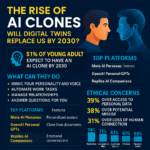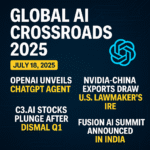Now Reading: Google Offers $340K Salaries to Win the AI Talent War in 2025
-
01
Google Offers $340K Salaries to Win the AI Talent War in 2025
Google Offers $340K Salaries to Win the AI Talent War in 2025

💼 Google Offers Up to $340,000 to Attract Top AI Talent in 2025
📈 The AI Talent War Intensifies
In the ever-expanding technological battleground of artificial intelligence, where innovation dictates global dominance, Google has fired a decisive shot. The tech giant has officially announced the restructuring of its compensation architecture, offering up to $340,000 annually to AI engineers, researchers, and machine learning architects who rank among the world’s best. This bold recalibration of salaries is not just a financial maneuver — it is a declaration of intent, supremacy, and survival in an increasingly aggressive race.
“In a world where top-tier AI talent is scarce, money talks louder than code.” – Silicon Valley HR Executive
With every launch of a smarter model, with each breakthrough in LLMs or multimodal intelligence, the value of human talent powering the algorithms increases exponentially. Google, already battling titans like OpenAI, Microsoft, Meta, and Amazon, is making it crystal clear: it will stop at nothing to secure the brightest minds of this generation.
🔍 Why Is Google Paying So Much?
1. A Growing Gap in AI Talent Supply
There is a severe global shortfall in highly skilled AI professionals. While the number of AI tools and applications has skyrocketed, the number of people capable of building, maintaining, auditing, and scaling them has not kept pace. Google must power its evolving ecosystem — from Gemini 2.5 to Bard-integrated Workspace tools — and that means locking down rare talent.
2. Brain Drain to Startups and Competitors
The recent wave of high-profile departures — from Google’s DeepMind and Research divisions to rivals like Anthropic, Mistral AI, and xAI — has set off alarm bells. These smaller firms offer startup equity, creative freedom, and faster iteration cycles, which are attractive to elite AI engineers. Google’s response? Cash-heavy offers, robust benefits, long-term stock incentives, and clear roadmaps to research leadership.
3. U.S. Market Pressure
The demand for AI talent in Silicon Valley, Austin, Boston, and NYC is beyond saturation. In these innovation hubs, the competition isn’t just fierce — it’s cutthroat. The U.S. AI ecosystem accounts for over 60% of global AI investments, and Google intends to remain at the top of this pyramid.
💰 Salary Breakdown: What $340K Includes
| Component | Estimated Value |
|---|---|
| Base Salary | $180,000 – $220,000 |
| Annual Bonus | $20,000 – $30,000 |
| Stock Grants (RSUs) | $50,000 – $90,000 |
| Signing Bonus (select) | $10,000 – $20,000 |
For AI Team Leads, Machine Learning Architects, and Responsible AI Scientists, compensation packages routinely cross the $300,000 mark — and that doesn’t include additional perks such as research stipends, patent bonuses, or customized remote work agreements.
🧠 Roles in High Demand
The AI economy is becoming increasingly segmented. Google’s top hiring targets include:
- 🔬 LLM Engineers (optimization, inference, fine-tuning)
- 🧠 Multimodal Researchers (vision + language + audio fusion)
- 📊 AI Evaluation Scientists (model alignment, stress testing)
- ⚖️ AI Ethics & Fairness Analysts
- 🏗️ AI Infrastructure Engineers (deployment at planetary scale)
“If you’ve touched anything GPT-like, Google wants you — badly.” – AI Recruiter, July 2025
📊 Global Shortage: The AI Talent Crisis by the Numbers
According to the McKinsey 2025 Global AI Workforce Index:
- 📉 Only 53,000 senior-level AI experts exist globally
- 🏢 Over 250,000 AI-related job openings remain unfilled
- 🔁 Annual turnover rate in Big Tech AI teams exceeds 15%
This results in a demand-supply imbalance of 5:1, with intense competition now moving from Silicon Valley to Toronto, Berlin, Seoul, and Tel Aviv.
🥊 The Battlefront: What Are Rivals Offering?
| Company | Max AI Salary (2025 est.) | Notable Offers |
| Microsoft | $325,000 | Azure AI Research, Copilot LLMs |
| Meta | $310,000 | Superintelligence division, Reality Labs |
| Apple | $295,000 | Apple Intelligence Core, Siri Rebuild Team |
| Amazon | $285,000 | AWS Bedrock, Alexa LLMs |
| OpenAI | $350,000+ + equity | RLHF, GPT-5 teams, Safety research |
Some startups are offering founder-track equity, targeting ex-Big Tech researchers with promises of autonomy and direct ownership.
🏁 Strategic Impact for Google
This hiring initiative is not merely a tactical upgrade — it is a foundational pivot. By securing top-tier AI talent, Google aims to:
- ⚙️ Reinforce the dominance of Gemini as a generalist AI model
- 🔍 Integrate LLMs into Search, Android, and Workspace
- 🛡️ Lead on AI safety, transparency, and regulation
- 🧱 Build scalable infrastructure for AI agents and assistants
“Talent is the real compute. Without it, there’s no innovation.” — Sundar Pichai (internal memo, June 2025)
🔮 What’s Next?
Expect even more aggressive packages by Q4 2025, as OpenAI expands GPT-5 recruitment and Meta boosts its open-source divisions. Industry insiders predict we’ll see:
- AI salaries breaching $400,000 in 2026
- AI roles in healthcare, defense, and finance offering golden parachutes
- Governments entering the talent war via public-private fellowships
For breaking insights on the AI labor market, multimodal model launches, and geopolitical talent shifts — stay with AI24-News.com, your frontline source for everything that matters in artificial intelligence.






























